Diet
The word “diet” is loaded. It often refers to an eating style that brings to mind salad and other cliché foods. However, diet just means what you eat, the quality and frequency that you eat it and the nutritional choices you make to meet your dietary needs and preferences.
You’ve probably heard of many types of diets that have ranged in popularity over time. There’s the keto diet, vegan diet, pescatarian diet, carnivore diet, gluten-free diet, paleo diet, low-carb diet, Whole30 diet, intermittent fasting and of course the Bulletproof diet just to name a few. How do you choose which one is best for you?
Having a healthy diet that helps fuel your mind and body can have an amazing impact on your life. Just think of what you would do with more energy, more focus or better digestion. Choosing the right diet depends on your health goals and where you’re at today. There’s no one-size-fits-all option, which is why it can be helpful to explore a wide range of diets to see which one resonates with you.
Read on to discover the benefits of a healthy diet, the Bulletproof approach to diet and the pros and cons of selected popular diets.
What Is a Diet?
A diet is the regular consumption of food and drink. When focused on healthier eating and making mindful choices, a diet can help us achieve balanced nutrition. Adopting a healthy diet contributes to overall well-being and may support the prevention of various health conditions.
Benefits of a Healthy Diet
Deliberately making healthier food choices is one of the first steps you can take to better wellness. There are so many ways a healthy diet benefits your body and mind.
The list of benefits goes on. Let’s turn to what the scientific community is saying about the importance of diet for overall wellness.
The Science-Backed Benefits of a Healthy Diet
Body Composition
Following the keto diet can help achieve quick weight loss without detrimental effects on power, muscle mass and strength. According to a recent study on semi-professional soccer players, in just 30 days participants were able to achieve a better body composition.5 This is great news for athletes who want to improve their fitness in a short amount of time.
Blood Sugar
Research on intermittent fasting also looks promising. A 12-week research study showed
significant improvement in participants’ blood sugar while reducing total daily insulin dose and body weight in insulin-treated people.6 Intermittent fasting could be an easy and convenient way for certain people to reduce caloric intake through food restriction rather than having to count calories or endure extensive documentation.
Immune Support
And finally, a study on a dairy-free and gluten-free diet shows its positive impact on children’s immune system and gut microbiome.7 By providing children at a summer camp with a regulated gluten-free and dairy-free diet, researchers found that all participants had a decrease in inflammation markers. Eliminating or reducing foods that trigger sensitivities can help with better immune support.
Although more research is needed for all types of diets, today’s scientific insights point to the far-reaching effects of food on our lives.
The Bulletproof Approach to Diet
The Bulletproof philosophy involves challenging your approach to nutrition with science-backed evidence. It supports fueling your body and mind with nourishing foods that help you feel fuller longer. While it takes elements from other diets, like keto and intermittent fasting, it is a customizable diet based on your needs.
Discover the pros and cons of various popular diets you may have heard of or even tried.
The Bulletproof Diet
The Bulletproof diet emphasizes quality fats as fuel, minimizing carb intake and supplementing to encourage recovery. It includes nutritionally dense foods and personalizing your approach to wellness.
Pros:
- Being in a state of ketosis can help you lose weight.8
- You may feel more focused and clear-headed.9
- Having a constant source of fuel (fat), can help with sustained energy.10
Cons:
- You may experience keto flu or other symptoms of keto.
- It restricts certain foods, which may be challenging in the long term.
- Can be more expensive, since it includes supplementation and specialty ingredients.
Keto Diet
The keto diet is a low-carb, high-fat diet that aims to induce a state of ketosis in the body, where it primarily burns fat for energy.
Pros:
- It is great for losing weight quickly, especially when you first start.11
- It can help stabilize blood sugar levels.12
- The high-fat foods prescribed in the keto diet can help you feel full, leading to quicker satiety.13
Cons:
- Initial side effects include keto flu, including fatigue, headache and irritability.14
- It restricts certain types of foods (like carbs), which may make it challenging to follow.
- There’s a risk of nutritional deficiency if you don’t plan out your diet carefully.
Paleo Diet
The paleo diet, also known as the caveman diet, is based on the idea of eating foods that our ancestors from the Paleolithic era might have consumed. It typically includes lean meats, fish, fruits, vegetables, nuts and seeds while excluding processed foods, grains, dairy and legumes.
Pros:
- You eat unprocessed, nutrient-dense foods, which can potentially lead to weight loss.15
- You may benefit from improved blood sugar support by reducing refined sugars and grains.
- It is naturally gluten-free, so ideal if you have food sensitivities.
Cons:
- It can be hard to eliminate whole food groups like grains and dairy.
- It can be expensive due to its emphasis on high-quality meats and organic produce.
- There’s a risk of deficiencies in calcium, vitamin D and fiber if you don’t carefully meal prep.
Intermittent Fasting
Intermittent fasting (IF) is an eating pattern that cycles between periods of fasting and eating. It doesn’t prescribe specific foods but rather focuses on when you should eat, with common methods involving daily time-restricted eating or occasional extended fasts.
Pros:
- It is simple to follow and flexible since it doesn’t require specific foods. No calorie counting!
- It may support longevity.16
- It is beneficial for brain health.17
Cons:
- Fasting periods can be challenging, especially in the beginning, leading to mood swings and irritability.
- You may be tempted to overeat during non-fasting periods, leading to weight gain.
- It can be hard to fast in social situations that involve food.
Dairy-Free
A dairy-free diet excludes all dairy products, such as milk, cheese, yogurt and butter. It relies on alternative dairy-free options like almond milk or coconut yogurt.
Pros:
- There are many milk alternatives on the market that you can choose from.
- Choosing a dairy-free diet can align with your ethical concerns about animal welfare.
- This diet can potentially alleviate digestive issues.18
Cons:
- Since dairy is a source of calcium, vitamin D and protein, excluding it may lead to nutrient deficiencies if you don’t substitute it properly.
- Dairy-free options can be expensive.
- You may not like the taste of dairy-free substitutes.
Gluten-Free
A gluten-free diet eliminates all sources of gluten, a protein found in wheat, barley and rye. It involves avoiding foods like bread, pasta and many processed products unless labeled gluten-free.
Pros:
- It encourages eating naturally gluten-free, nutrient-dense foods like fruits, vegetables and unprocessed meats.
- It may help reduce digestive issues.19
- It may improve skin conditions.20
Cons:
- Gluten-free products can be more expensive and not as tasty as their gluten counterparts.
- Eating out can be challenging.
- Your diet may lack essential nutrients like fiber, B vitamins and iron if you’re not careful.
Whole30
The Whole30 diet is a 30-day elimination diet that focuses on whole, unprocessed foods while excluding sugar, grains, dairy, legumes and certain additives.
Pros:
- It emphasizes nutrient-dense, unprocessed whole foods.
- You can potentially identify food sensitivities by systematically eliminating common trigger foods.
- Promotes a more mindful approach to food and can help break unhealthy eating habits.
Cons:
- It eliminates several food groups, which may make it difficult to follow.
- The food choice can feel repetitive.
- It takes effort since you need to do a lot of label reading and meal prep.
Healthy Diet Recipes
Eating healthy foods can be as tasty as it is nutritious. Explore some of our favorite healthy diet recipes and get inspired

Bulletproof Coffee Recipe
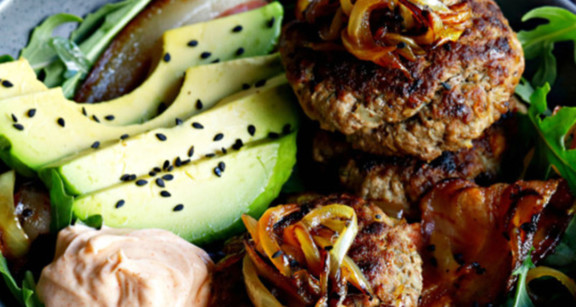
Low Carb Meals
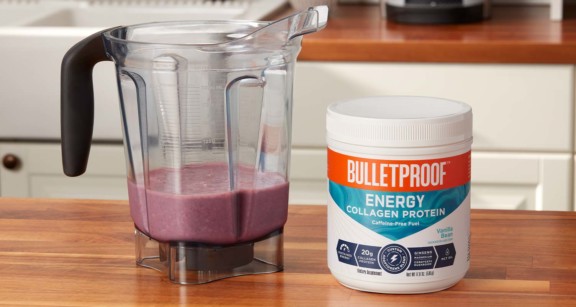
13 Easy & Delicious Post Workout Smoothie Recipes

Best High Protein Snacks to Make Today

10 Keto Snacks to Make Today
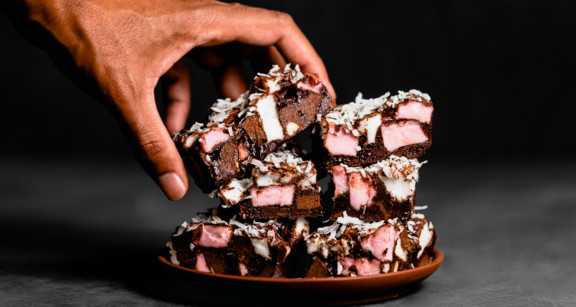
10 Low Carb Snacks to Make Today

Whole30 Breakfast Ideas You Won’t Get Tired of Eating
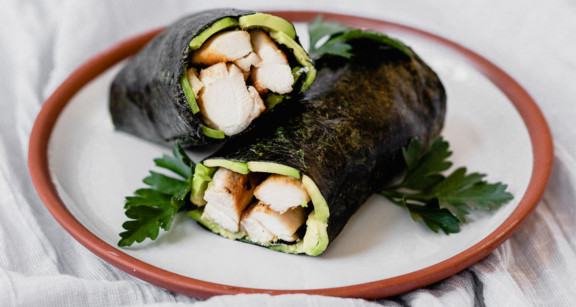
19 Easy Clean Eating Recipes That Take 20 Minutes or Less
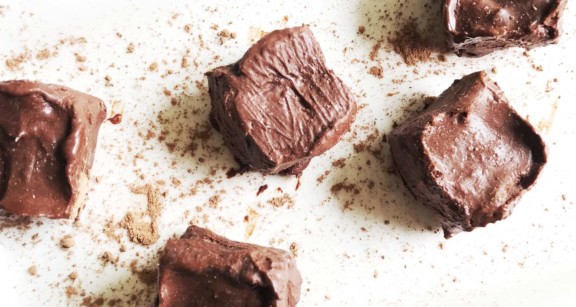
Sugar-Free Chocolate Coffee Truffles
Learn More About Diet
Diet Articles
10 Secrets for Success on the Bulletproof Diet
The Ultimate Guide to the Bulletproof Diet
Bulletproof Diet For Women: The Top 5 Food Hacks to Kick Even More Butt
How to Maintain Weight on the Bulletproof Diet
Here’s How to Do the Whole30 and Be Bulletproof
Bulletproof Diet for Beginners: Everything You Need to Know to Get Started
Can Vegetarians Eat The Bulletproof Diet?
Bulletproof vs. Paleo vs. Low-Carb and Ketogenic Diets: What’s The Difference?
How to Explain the Bulletproof Diet to Your Family and Friends
Hacking the Cost of the Bulletproof Diet On A Budget
How to Do an Elimination Diet and Why Everyone Should Try One
The Carnivore Diet: Is the Zero-Carb Diet Really Effective?
OMAD: Should You Do the One Meal a Day Diet?
The Keto Diet & Bodybuilding – Tips and Meal Ideas
What is the Cyclical Ketogenic Diet (CKD)?
The Ultimate Diet Guide: Pros and Cons of Popular Diets
How to Get Your Diet Back on Track
Complete Beginner’s Guide To The Ketogenic Diet
How to Lose Weight and Stick to Your Diet This Year
Vegan Keto: Why a Plant-Based Keto Diet Isn’t Good for You
Targeted Ketogenic Diet vs. Standard Keto: What’s the Difference?
Types of Fasting Diets and How to Choose the Right One
What Is the Pegan Diet? What Happens When Paleo Meets Vegan
A Low-Carb Diet Helps Shed Body Fat, Even if the Scale Doesn’t Change
What Is a Low Carb Diet? What You Need to Know for Weight Loss
The Truth About Fad Diets and What to Do Instead
Gained Weight on the Paleo Diet? Here’s What Went Wrong.
Why Carb Cycling Can Be an Effective Strategy for Keto Dieters
Diet Recipes
Shirataki Noodles Recipes That’ll Blow Your Mind (Not Your Diet)
32 MCT Oil Recipes That Can Fit Any Diet
20 Easy Recipes to Add to Your Healthy Routine
Best Detox Foods: 19 Recipes for a New Year’s Refresh
13 Easy & Delicious Post Workout Smoothie Recipes
Keto Comfort Food Recipes for People Who Love Cozy Meals
Keto Lunch Recipes: Easy, Packable, Low-Carb Meals for Work or Work-from-Home
Whole30 Snacks: Easy Recipes to Keep You on Track
30 Easy Whole30 Dinner Recipes to Ensure You Succeed
Paleo Meal Plan: 5 Recipes for a Week of Easy Meals
Gluten-Free Avocado Pizza With Cauliflower Crust
Dairy-Free Keto Lemon Fat Bombs
28 Best Recipes for Gluten-Free Pancakes
FAQs
At Bulletproof, we are big believers in mindful eating. It involves paying full attention to the sensory experience of eating, as well as the thoughts and emotions that accompany it. It’s a conscious and intentional approach to eating, where you become more attuned to your hunger and satiety cues, as well as the flavors, textures and aromas of food. Mindful eating supports a healthier relationship with food, as it can help prevent overeating, reduce mindless snacking and foster a greater appreciation for the nourishment that food provides.
This diet is predominantly plant-based but includes seafood and fish as the primary sources of animal protein. In a pescatarian diet, you don’t eat any meat. Instead, you eat fish and seafood, which are rich in essential nutrients like omega-3 fatty acids, protein and various vitamins and minerals. Some people include dairy and eggs in this diet, while others may opt for a more plant-focused approach.
While the Bulletproof Diet and the keto diet both emphasize high-fat and low-carb foods, they aren’t quite the same. The Bulletproof Diet encourages high-quality, nutrient-dense foods, dietary supplements to optimize wellness and unique components like Bulletproof Coffee.
There is no “best” diet for weight loss because your personal preferences, lifestyle and physiological response to various diets all matter. That being said, diets that may be effective for weight management include low-carb diets like the Bulletproof Diet and the keto diet; intermittent fasting; and the paleo diet. Mindful eating, though not an actual diet, can also help with weight loss by encouraging you to tune in to hunger and fullness cues, which can potentially reduce emotional eating.
Start by determining your main objectives. Do you want to improve your health, manage a health condition or lose weight? Then consider your dietary preferences. What are you willing to eat regularly and what are you willing to give up? After that, assess your lifestyle. Some diets require extensive meal prep and planning. Choose a diet that is realistically doable taking into account your daily routine. If you have any underlying health conditions, consult with a healthcare professional to help personalize your diet plan. And finally, you don’t have to go all-in, all at once. Start slow and experiment to see what works best for you.